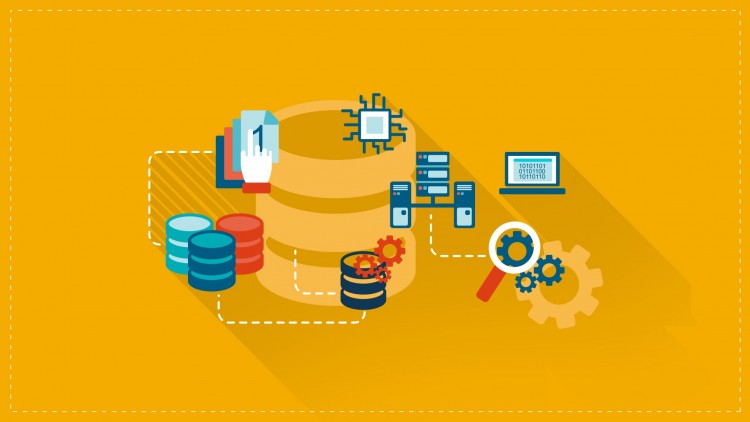Master Data Management (MDM) is a process of collecting the company’s data from various sources, applying standard rules and business processes, building a single view of the data and finally distributing this data to various systems in the organization. This way the data becomes accessible to all its consumers. Microsoft’s master data services are the SQL Server solution for master data management.

Master data service is used as a reference data management system. It aims to create a centralized data source so that the enterprises can exercise total control over the information through MDM’s centralized platform. The data risks and costs are also highly reduced. Microsoft’s Master Data Services is used for developing MDM solutions built on top of SQL Server database technology for back end processing.
The MDM system should be flexible so that the business reports are error-free. Master data management software ensures this. It comprises the processes, tools, policies, standards, and governance defining and managing the master data. A number of master data management software is available- Ataccama, Profisee, Orchestra Networks, SAP Master Data Governance, SAS Master Data Management, Stibo Systems, Omni-Gen, Tibco MDM, Riversand, Oracle Product Hub and many more. Here we have covered the top 5 master data management software for you.
1. Ataccama
Ataccama offers a collaborative data curation platform including solutions for data profiling, catalog, governance, quality and master data management. The MDM solution supports multiple domains, reference data management, hierarchy management and much more.
Main Features:
- Data consolidation
- Contains Pre-defined business models
- Reference data management
- Business rule enforcement
- Householding, aggregation, and categorization to group similar entities and identify relationships
- Data editing and authoring
- Hierarchy management
- Data monitoring and data auditing
- Analytical MDM
Strengths:
- multi-domain MDM is supported
- robust data matching, identity management, and hierarchy management capabilities
- highly scalable solutions
- big data connectivity and full data quality activities are supported
Weaknesses:
- product information management capabilities are not well developed compared to other MDM solutions
- a separate module is needed to support reference data management
- not a big player in the MDM market
- implementation and deployment process is quite lengthy
2. SAP Master Data Governance
SAP Master Data Governance is the MDM solution from SAP. It provides domain-specific MDM as well as collaborative and pre-built workflows.
Main Features:
- Audit trail related to changes to the master data
- Collaborative and pre-built workflows
- Data cleansing along with profiling, standardization, matching, and enrichment
- Automated routing
- Built-in data governance
- Role-based user interfaces
Strengths:
- Integrates with SAP HANA which is an in-memory data platform that supports data cleansing activities and analytics
- flexible workflows including numerous pre-built ones
- pre-configured and extensible data models
- multi-mode data replication efforts are supported
Weaknesses:
- hierarchy management capabilities are not so developed
- Relatively immature cloud integration support
- limited analytics support for social CRM data
- UI is not so intuitive
3. Profisee
The Profisee Platform is the only platform in the market that provides overall data management solutions for any business with low cost involved. Moreover, it also provides a wide range of features of an MDM platform. It provides the first MDM solution that is truly approachable and affordable for business data stewards.
Main Features:
- Data modeling
- Data stewardship and governance
- Data integration
- Golden record management
- Enterprise workflows
- Event management
- Metadata management
- Industry data models
Strengths:
- Offers a speedy time to value
- real-time, bi-directional integrations with identity resolution are supported
- robust golden record management ensures a single, standardized view of all data
- Delivers scalability with continuing levels of high performance
Weaknesses:
- Lacks strong product information management capabilities, such as BOM support
- Doesn’t leverage NoSQL database technology, such as graph databases
- Modest partner ecosystem
- runs only on Windows/SQL Server
4. Riversand
Riversand is a global software company offering an all-in-one, cloud-native platform for multi-domain MDM that covers data governance, data quality, reporting and much more.
Main Features:
- Vertical-specific master data use cases, including product, customer, vendor, spare, materials and supply chain master data
- Data governance
- Data Reporting
- Data quality
Strengths:
- Supports multi-domain and multi-entity MDM
- Deterministic data matching
- Robust process orchestration and product information management capabilities
- Has built-in capabilities for data governance and data quality
Weaknesses:
- Implementation partners are limited
- The operational capabilities for customer master data are not so well developed
- Minimal international presence
- It requires a complex and costly implementation
Also Read: What are the Best Photo Editing Apps for Android?
5. TIBCO MDM
It is cloud-based, multi-domain software supporting multi-party and multi-tier distribution.
Main Features:
- Multi-domain MDM has an extensible master data repository
- Flexible data modeling that can capture cross-domain relationships
- Ready-to-go templates, drag-and-drop UI capabilities, no coding is required
- Dashboards for data and workflow visualization
Strengths:
- Complete end to end support!
- Integrated business process management, collaborative authoring, and orchestration to allow for active data governance
- Various templates and also supports multi-hub and multi-application MDM
- Collaborative and operational MDM
Weaknesses:
- Reference data management capabilities are not so well developed
- Slow to refresh data
- customization capabilities are limited
- Steep learning curve for business users

Leave a Reply